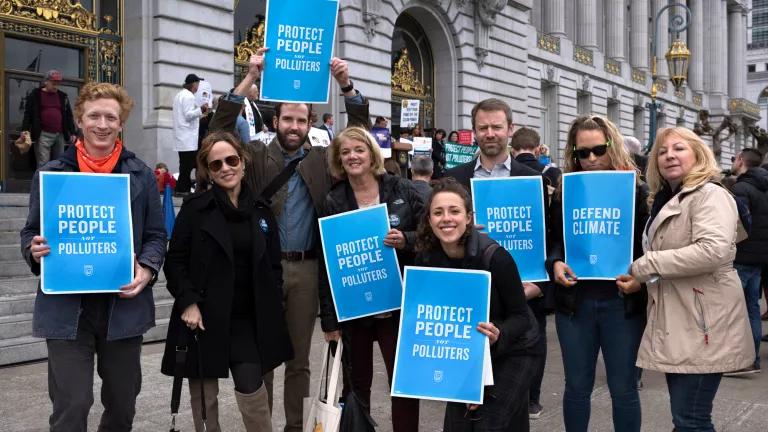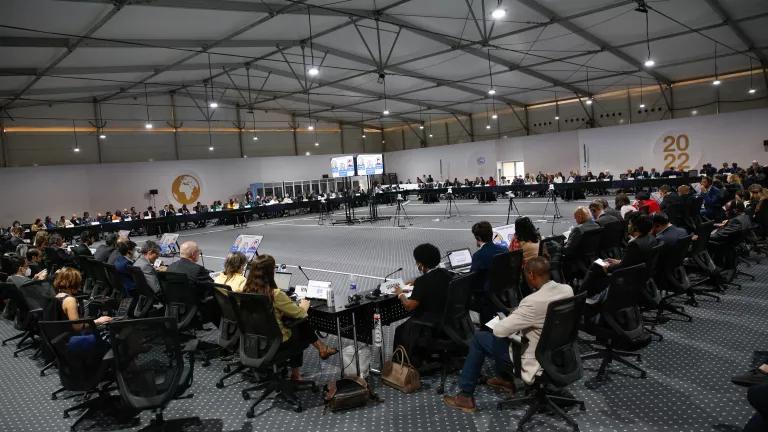Potential Progress on California Wildfire Issues

A California state commission has issued a long-awaited draft report on how to manage costs and liabilities associated with catastrophic wildfires, which remain both agonizing recent memories and a continuing threat linked in part to climate disruption. The initial response of the governor and legislative leadership was positive. The draft report will not be finalized for several weeks, but key recommendations clearly deserve widespread support.
These recommendations include legislative action to change the application of California’s judge-made “inverse condemnation” doctrine, which has destabilized the state’s utility sector:
Finding 3. The current application of inverse condemnation, holding utilities strictly liable for any wildfire caused by utility equipment regardless of standard of care or negligence, imperils the viability of the state’s utilities, customers’ access to affordable energy and clean water, and the state’s climate and clean energy goals; it also does not equitably socialize the costs of utility-caused wildfires.
Finding 4. The increasing costs of capital and the risk of bankruptcy associated with the application of strict liability inverse condemnation doctrine to water companies, publicly owned utilities, and investor-owned utilities is harmful to wildfire victims, ratepayers, and the utilities themselves.
Accordingly, “the commission recommends that the current strict liability application of inverse condemnation for utilities be replaced with a fault-based standard.” The legislature can accomplish this by statute, without any need for a constitutional amendment; the California Supreme Court stated in 2016 that “there is a ‘strong presumption in favor of the legislature’s interpretation of a provision of the Constitution’.” My recent article addressing this and related legal aspects of wildfire liability reform is here.
NRDC strongly agrees with the draft report’s recommendations to change California’s uniquely dysfunctional application of inverse condemnation. Following the Pacific Gas & Electric Company’s (PG&E’s) declaration of bankruptcy last January, I published a blog concluding that
To reduce the likelihood of future utility bankruptcies across the state, however, the California legislature should revisit judge-made law in California that holds utilities liable for wildfire damage regardless of whether their conduct is negligent or unreasonable. California is the only state that has established this “strict liability” doctrine for wildfire damage, and utility customers are among those with the largest stake in a shift back toward the legal mainstream, in which liability and any resulting increases in utility bills require a finding of unreasonable or negligent conduct. The same can be said of state legislators and regulators, whose authority over utility operations and priorities is greatly reduced during federal bankruptcy proceedings.
All Californians sympathize deeply with the victims of our recent catastrophes, which caused dozens of deaths and wreaked unprecedented destruction across the state. However, victims’ interests aren’t served by pushing utilities into bankruptcy because that will convert wildfire sufferers into one more class of frustrated creditors pursuing inadequate funds. The same goes for utility customers, who always end up paying more in the aftermath of bankruptcies. Another substantial casualty could be billions of dollars of funding for PG&E’s nation-leading clean energy initiatives, which are designed to help fight the effects of climate change, like these tragic wildfires.
The commission draft also calls on the legislature to “ensure cost recovery reflects the host of factors—including risky homeowner or renter behavior—that contribute to the extent of wildfire damage, and does not hold utilities solely liable in cases where other factors contribute to the magnitude of the damages.” NRDC concurs; specific legislative language to achieve this objective can be found here.
The draft includes recommendations for managing utilities’ recovery of wildfire costs, establishing contingency funds, managing availability and cost of wildfire insurance, and centralizing oversight of wildfire mitigation practices across a diverse utility system. NRDC is reviewing all the proposals and will submit comments at a public meeting scheduled for June 7 in Sacramento. But it is safe to say now that the commission draft is a promising and urgently needed first step toward the prudent management of wildfire risks and costs, without which vital interests of victims and the public at large will remain at severe risk.
It is important to emphasize in closing the need for a comprehensive legislative response to the issues raised by the commission (and many others). For example, if all we get is some variant of a new wildfire compensation fund underwritten solely by utilities and their customers, electricity costs will rise significantly with no end in sight and California’s entire clean energy agenda will be at risk. NRDC will urge that any new funds should be broadly sourced, as the Commission draft recommends, that utility bill impacts should be constrained to reasonable limits, that disbursement criteria should include safeguards against inflated claims, and that any such legislation should also include the commission’s proposed liability reforms.



